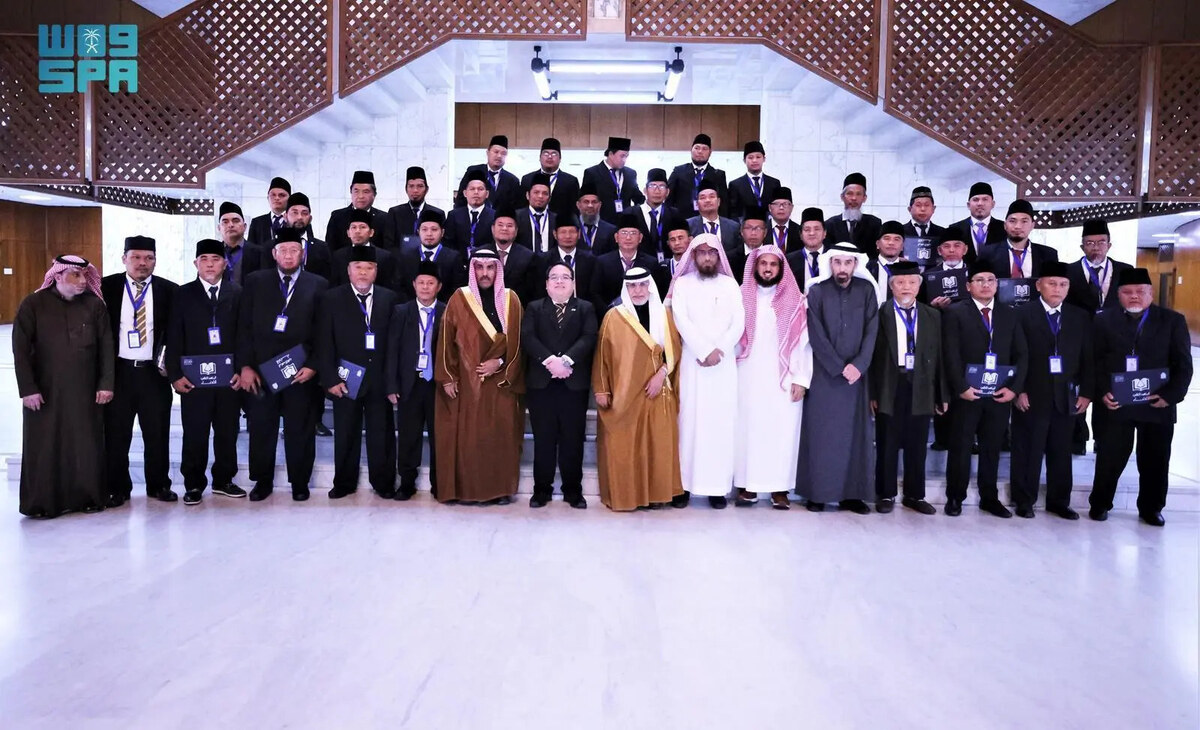Addressing water and land challenges at COP16

https://arab.news/4xfef
Standing on a rocky outcrop on the outskirts of Riyadh, the capital of Saudi Arabia, one cannot help but be struck by the vast expanse of arid land that stretches endlessly to the horizon.
The rolling dunes and rugged terrain tell a story of resilience and adaptability. But behind this harsh beauty lies an urgent crisis. According to the World Bank, three-quarters of the region’s arable land is already degraded, and 60 percent of the population faces water scarcity — a figure that is expected to reach 100 percent by 2050.
Water scarcity and land degradation are not just environmental issues. They are existential threats to the Kingdom and beyond. With no natural rivers or lakes, Saudi Arabia relies heavily on groundwater and desalinated seawater.
Climate change is exacerbating this fragile balance, causing unpredictable rainfall, prolonged droughts and heat waves that deplete water resources faster than they can be replenished. At the same time, droughts are becoming more frequent and severe.
This is why Saudi Arabia recently joined the International Drought Resilience Alliance — a global coalition mobilizing resources to prepare for severe droughts — whose secretariat is hosted by the UN Convention to Combat Desertification.
The implications of this looming water crisis are profound. Agriculture, which consumes around 85 percent of Saudi Arabia’s water, could face catastrophic disruption.
As water becomes scarcer, food security is threatened, and the livelihoods of those who depend on agriculture hang in the balance.
Severe desertification, where fertile land is reduced to barren landscape, further exacerbates food insecurity and economic instability.
The economic costs are staggering, with billions of dollars lost each year. In the Middle East alone, land degradation affects more than 50 million hectares, resulting in annual losses estimated at $9 billion.
This December, the importance of tackling land degradation and water scarcity will be in the global spotlight when Saudi Arabia hosts the UNCCD COP16 in Riyadh. The summit is shaping up to be the largest and most ambitious global forum on land and drought to date.
Water scarcity and land degradation are not just environmental issues. They are existential threats to the Kingdom and beyond.
Ibrahim Thiaw
This pivotal moment, which also coincides with the 30th anniversary of the convention, is an opportunity for all nations to come together to develop sustainable solutions and demonstrate their commitment to land restoration.
Every year we lose 100 million hectares, an area the size of Mauritania. If current trends continue, we will need to restore 1.5 billion hectares by 2030 to achieve land degradation neutrality.
Around the world, countries are taking bold steps to restore land. In Africa, for example, the Great Green Wall initiative aims to restore 100 million hectares of degraded land in 20 countries by 2030, creating jobs and improving food security.
China’s Kubuqi Desert, once a storm-ravaged wasteland, has been transformed through reforestation, ecosystem restoration, organic farming, eco-tourism, green industry and solar energy, benefiting 102,000 local people and lifting many out of poverty.
Furthermore, the Middle East Green Initiative, a regional effort led by Saudi Arabia, is set to plant 50 billion trees across the Middle East, revitalizing 200 million hectares of degraded land.
These initiatives, along with the Saudi Green Initiative, which aims to restore 40 million hectares of degraded land, illustrate the global commitment to tackling land degradation and water scarcity.
Through collaborative efforts and innovative solutions, there is hope that the challenges of water scarcity and desertification can be mitigated, ensuring a more sustainable future for the Kingdom, the broader Middle East, and beyond.
• Ibrahim Thiaw is the under-secretary-general and executive secretary of the UN Convention to Combat Desertification.
























